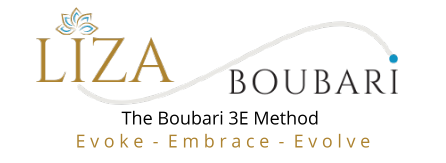Explore hypnotherapy’s unique benefits and applications compared to traditional talk therapy, and discover which approach might be right for you.
$200.00 off
As one woman to another, I am gifting you $200.00 off when you purchase 4 sessions with me.
You can’t affect the cards that are dealt, but you can determine how you play them.
~ Milton Erickson
Hypnotherapy vs Traditional Talk Therapy: Understanding the Differences
When seeking mental health treatment, patients are often faced with various therapeutic options, two of which are hypnotherapy and traditional talk therapy. Each method offers distinct approaches and benefits, catering to different needs and preferences. Understanding the differences between these two can help individuals make informed decisions about their mental health care.
Hypnotherapy: An Overview
Hypnotherapy involves guided hypnosis, a trance-like state of focused attention and heightened suggestibility. Practitioners use relaxation techniques and mental imagery to help clients reach this state, which can be particularly effective for issues like anxiety, phobias, and pain management. The underlying theory is that the mind is more open to suggestion and positive change during hypnosis, allowing therapists to access the subconscious mind and address deep-rooted issues.
Studies have shown that hypnotherapy can be effective for various conditions. For instance, a meta-analysis published in the International Journal of Clinical and Experimental Hypnosis found that hypnotherapy had a substantial positive effect on patients with irritable bowel syndrome (IBS). Similarly, research in the American Journal of Clinical Hypnosis highlighted its effectiveness in reducing chronic pain.
Traditional Talk Therapy: An Overview
Traditional talk therapy, also known as psychotherapy or counseling, encompasses a range of techniques like cognitive-behavioral therapy (CBT), psychodynamic therapy, and mindfulness-based therapy. These methods involve structured conversations between the therapist and the client, focusing on identifying and changing negative thought patterns, exploring past experiences, and developing coping strategies.
Talk therapy has a robust body of evidence supporting its efficacy. For example, a study in the Journal of Consulting and Clinical Psychology found that CBT is highly effective for treating depression and anxiety disorders. Another study published in the journal Mindfulness highlighted the benefits of mindfulness-based stress reduction (MBSR) in managing stress and improving overall mental well-being.
Comparing the Two
While both hypnotherapy and traditional talk therapy aim to improve mental health, their approaches and applications differ significantly. Hypnotherapy is often shorter in duration, focusing on specific issues through subconscious suggestion. In contrast, talk therapy typically involves a longer-term commitment, addressing a broader range of issues through conscious dialogue and behavioral change.
Choosing the Right Therapy
The choice between hypnotherapy and traditional talk therapy depends on individual needs and preferences. Those seeking rapid, focused intervention for specific issues might benefit from hypnotherapy. Conversely, individuals looking for a more comprehensive approach to mental health, addressing multiple aspects of their lives, might prefer traditional talk therapy.
Ultimately, consulting with a mental health professional can help determine the most suitable approach, ensuring personalized and effective treatment.
References:
- “Hypnotherapy for Irritable Bowel Syndrome: A Meta-Analysis,” International Journal of Clinical and Experimental Hypnosis.
- “The Effectiveness of Hypnotherapy in Reducing Chronic Pain,” American Journal of Clinical Hypnosis.
- “Efficacy of Cognitive Behavioral Therapy for Depression and Anxiety Disorders: A Meta-Analysis,” Journal of Consulting and Clinical Psychology.
Book a Consultation
Dental Surgery With Only Hypnosis No Anesthetic – Video
This video was made to show how hypnosis can work for people who do not want to use anesthetics and to show how Liza Boubari has no pain during the root canal procedure.


